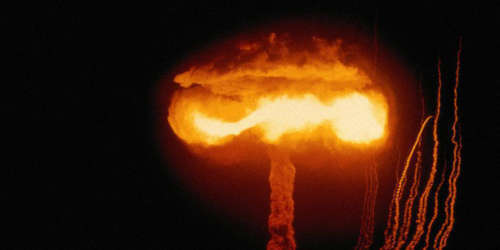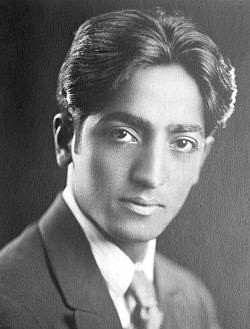Not every modern student of Alice A. Bailey’s writings may be aware of what she said about the atomic bomb (still a very new thing at that time). I think she had some positive views on both the atomic bomb and atomic energy – she wrote “the wise, controlled use of the results of this scientific adventure…” The “scientific adventure” of course was the discovery of both uses of the atom, one destructive and one constructive (electrical power for example).
I will do a post later on her specific writings on atomic energy that may not be included here. As to the bomb she (or DK) envisioned it coming under the control of the United Nations to be used to deter aggression. Of course we know that never happened.
Author and long-time student of the AAB writings Joseph J. Dewey found a unique correspondence in the exploding of the first atomic bombs seeing it as the The Sign of the Son of Man quoting this verse from the New Testament:
“Immediately after the tribulation of those days shall the sun be darkened (or “obscure”) , and the moon shall not give her light, and the stars shall fall from heaven, and the powers of the heavens shall be shaken.” (Matthew 24:29)
He writes:
The key to the meaning of the verse is in the Greek word for “heaven” which is OURANOS. The element Uranium was named after this. For proof one merely has to check any good dictionary and it will trace Uranium to OURANOS.
And:
The splitting of the atom and the releasing of the pure energy of Spirit is a perfect correspondence to the resurrection of Christ. The life force of the atom was released to enter the way of higher evolution just as the tomb of the Christ burst opened and released the Son of God. The splitting of the tomb of material matter is the one sure sign that the Son of man is the Son of God, and the knowledge given to man to split the tomb of the atom is the greatest scientific revelation given to man to date. It is a sign that we are not far from overcoming death as Christ did.
Below are quotes from the writings of AAB:


